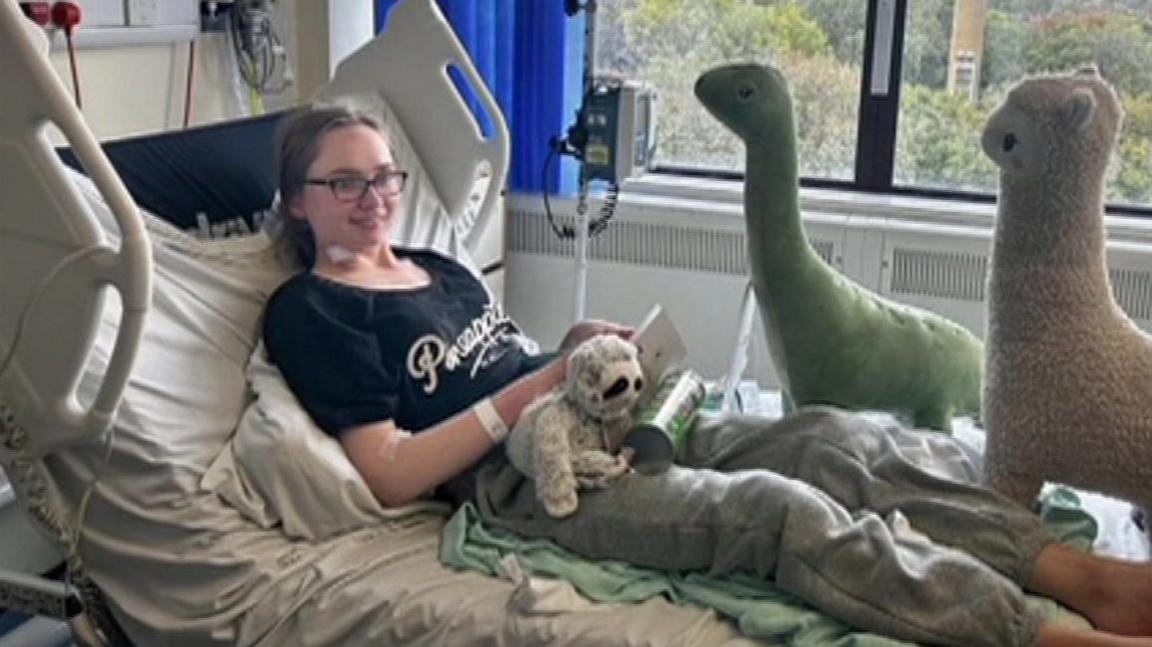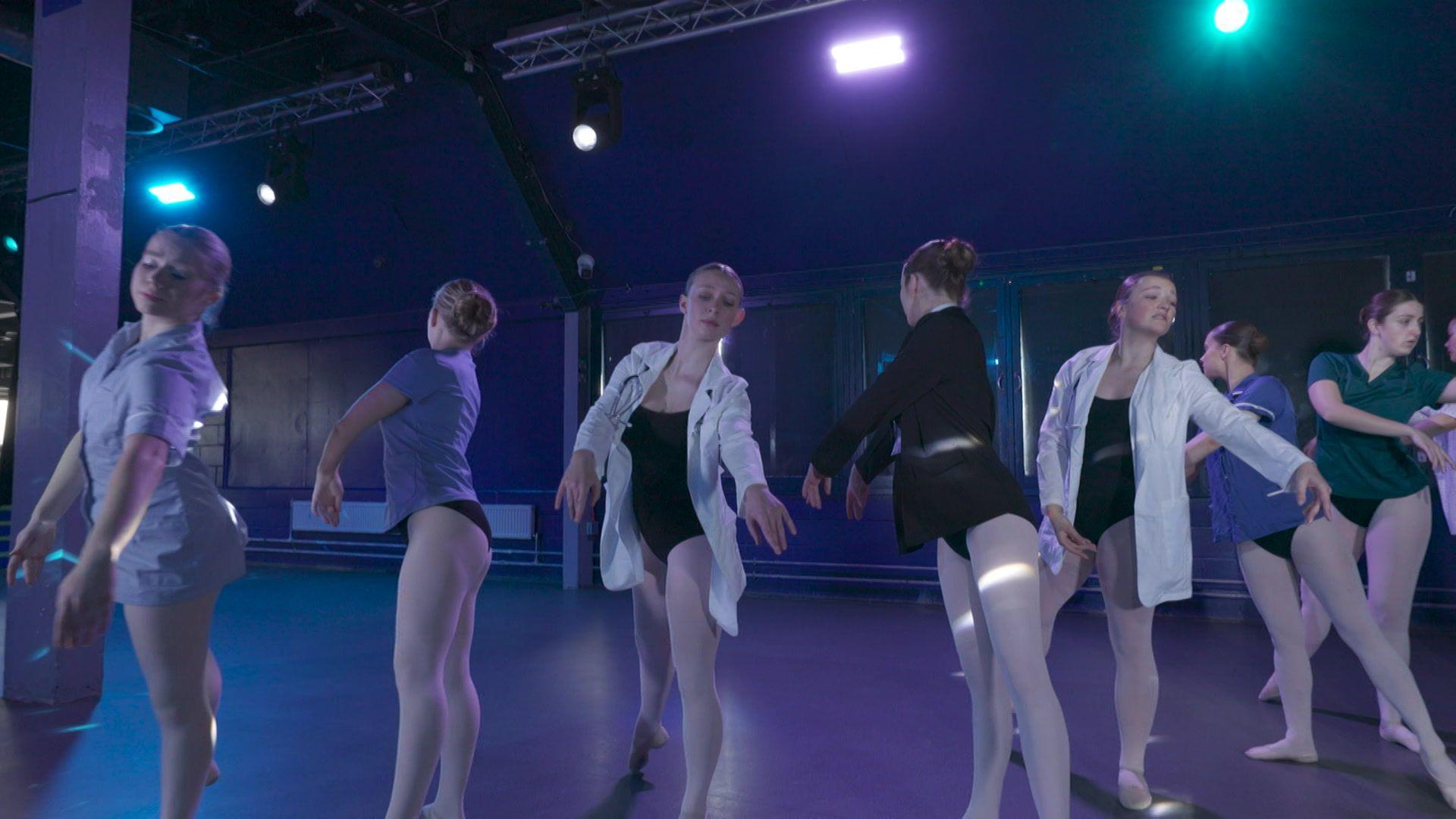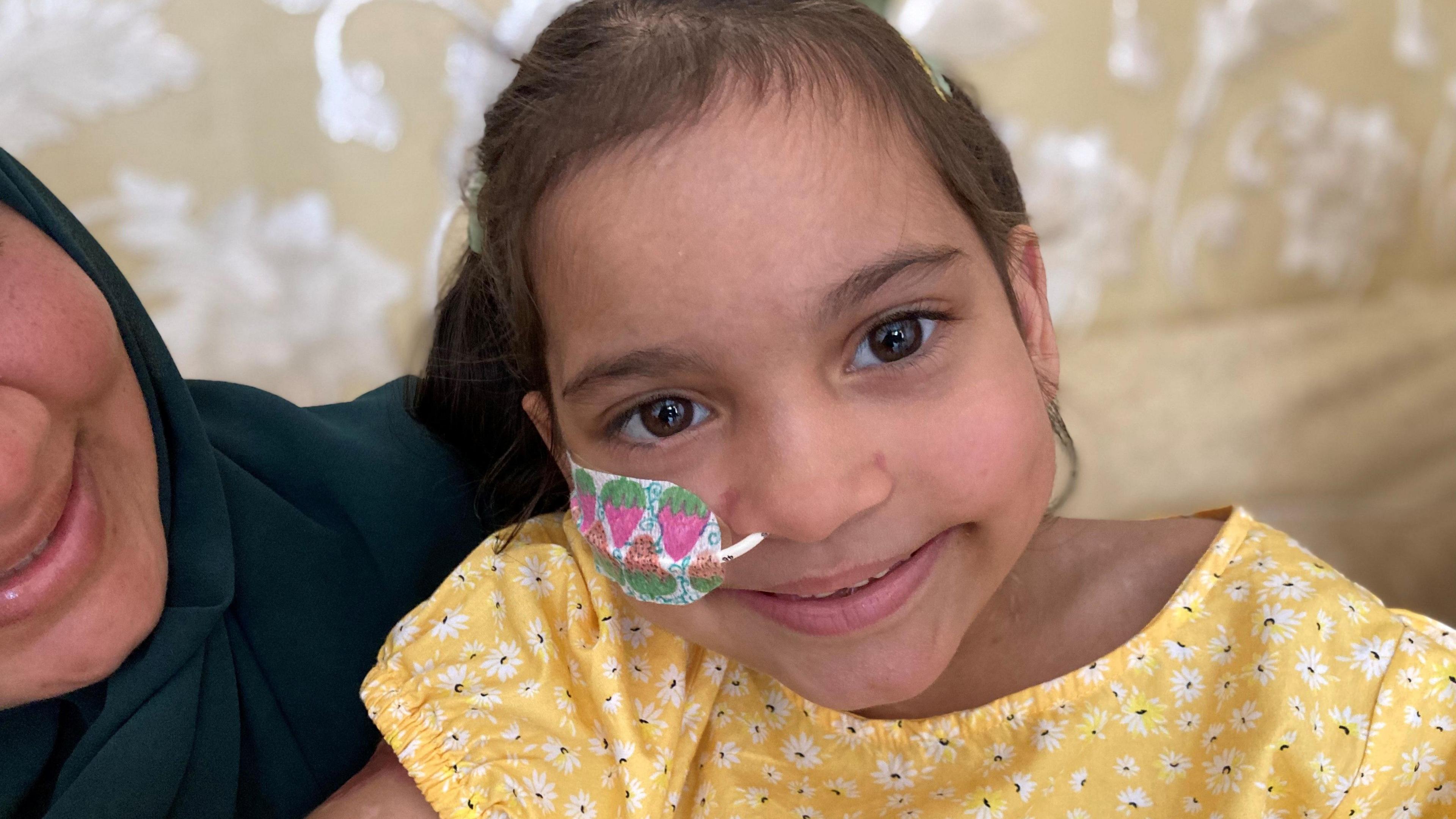Quick action helps save student from meningitis

Eliana's flatmates raised the alarm
- Published
A student from south-east London is spearheading a campaign to raise awareness of the risks and symptoms of meningitis.
Eliana Shaw-Lothian had just started at the University of Surrey when she fell critically ill with meningitis B two years ago.
She said the quick response from friends and campus staff helped save her life.
"I woke up on a Friday morning with a really bad headache and feeling a bit dizzy," she said.
"I didn't think much of it because it's quite a generic symptom, and then that evening I got really cold hands and feet and a stiff neck and stiff joints."
Four weeks into her first term at university, psychology student Eliana from Bromley had become suddenly unwell and within hours her symptoms rapidly worsened.
"It wasn't until that evening when I started being sick, feeling that maybe something isn't quite right but by the time I'd realised that I went delirious," she said.
"The next thing I remember is waking up in hospital three days later out of an induced coma."
Eliana had told her parents she was feeling unwell the night before and she said their concern and the quick thinking of her flatmates likely saved her life.
"Luckily my flatmates had heard my phone ringing which is why they came into my room to check on me, because they could pick up the phone and talk to my parents," she said.
"I think that's why it was so quick and I was admitted into hospital so quickly."
What are the symptoms?
Dr Tom Nutt, chief executive of Meningitis Now, said: "Meningitis B isn't very common but it can be deadly and university students are one of the groups most at risk.
"Many of us within the general population will be carrying the bacteria that can cause meningitis and we'll be carrying it harmlessly at the back of our nose and throats.
"It's about one in 10 of the population, but actually once you get students coming together from all over the country congregating in campuses, living together in halls of residence and in digs, well then you're more likely to see that bacteria spread amongst those individuals.
"So actually it's as many as one in four students.
"There are seven symptoms of meningitis B that should be acted on immediately.
"They are fever, headache, vomiting, muscle pain, sensitivity to bright lights, a stiff neck and a rash that doesn't fade under pressure."
Dr Nutt added that it was important to take action if symptoms suddenly worsen.
"Not all those signs and symptoms will necessarily appear and they won't necessarily appear in any particular order," he said.
"So you need to sound the alarm when someone is abnormally unwell and deteriorating."
He said a vaccine exists for meningitis B, but is currently only available on the NHS for babies.
"We think that the student age group should be able to access that vaccine for free on the NHS, but presently that's not the case and we would like to see that changed," he said.

Nearly two years on, Eliana is still recovering but is dancing again
Keen dancer Eliana said meningitis B has left its mark.
"Now I still have fluid around my heart and lungs and some scarring but as a whole I'm doing really well. It's slowly going away," she said.
"For some people they're not as lucky so I'm incredibly thankful and I'm back at uni and I'm still dancing so I'm very happy and very thankful."
Listen to the best of BBC Radio London on Sounds and follow BBC London on Facebook, external, X, external and Instagram, external. Send your story ideas to hello.bbclondon@bbc.co.uk, external
Related topics
- Published17 August

- Published27 June

- Published5 February
